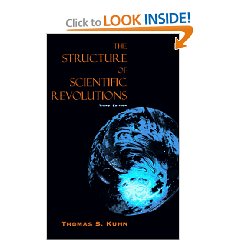He seems to have missed the genocide against the Tatars, but perhaps that was hidden from him.
Review: Imagine–What America Could Be in the 21st Century
5 Star, Civil Society, Consciousness & Social IQ, Culture, Research, Democracy, Future, Values, Ethics, Sustainable Evolution, Voices Lost (Indigenous, Gender, Poor, Marginalized)I almost did not buy this book, and I say that because an awful lot of really smart folks might be inclined to turn away on the basis of the title and the possibility that this is a fairy tale wishful-thinking la la land kind of book. It is not. It is practical (and political), it is enriching, and it is over-all a very high quality endeavor that has been well executed.
Four “great truths” are articulated many times over across the various readings, and they merit listing here:
1) Campaign finance reform is the absolute non-negotiable first step that must precede every other reform. Until the people can reassert their great common sense for the common good, and restore the true democratic tradition, nothing else will happen.
2) Neighborhoods are the bedrock of both democracy and sustainable development, and we have spent fifty years building in the wrong direction. New legal and economic incentives must be found to redirect both urban and suburban real estate management back in the direction of self-contained neighborhoods.
3) Local production of everything, from electricity to food to major goods like automobiles) appears to be a pre-requisite for deconflicting high quality of life needs from limited resource availability. The book includes several very intelligent discussions of how this might come about.
4) Networking makes everything else possible, and by this the book means electronic networking. I was especially fascinated by some of the examples of near-real-time sharing that electronic networking makes possible–everything from a neighborhood car to scheduled hand-me-downs of winter coats from one family to another. We have not progressed one mile down the road of what the Internet makes possible at a personal and neighborhood level, and I would recommend this book for that perspective alone.
The creative editorial role must be applauded. From the identification and recruitment of the contributors, to the selection of the photographs that each tell their own story, to the quality of the paper used to create the book, all testify to the competence and knowledge of the editor.
Lastly, it merits comment that the book serves as a very fine calling card from something called The Global Renaissance Alliance, a spiritually-oriented group that nurtures Citizens Circles and uses a web site to provide pointers to resources and other like-minded folk.

Review: Policing the New World Disorder–Peace Operations and Public Security
4 Star, Atrocities & Genocide, Complexity & Resilience, Culture, Research, Force Structure (Military), Humanitarian Assistance, Insurgency & Revolution, Justice (Failure, Reform), Peace, Poverty, & Middle Class, Security (Including Immigration), Stabilization & Reconstruction, Threats (Emerging & Perennial), Truth & Reconciliation, Voices Lost (Indigenous, Gender, Poor, Marginalized)In excruciating detail, with substantial commonality between a number of case studies, this book examines the traditional public security (police, internal order) function in relation to failed states and external interventions.
This is not a book about the larger issue of when and how to intervene in the internal affairs of states beset by internal conflict and it is not a book about the actual conditions around the world that require some form of imposed or reinforced public order. Rather, it is the most detailed book one could hope for on the need for an international law enforcement reserve that is capable of rapidly filling the gap in local public police services that occurs when the indigenous capability collapses and traditional military forces arrive unprepared to meet this need.
All of the case studies are world-class, with primary source detail unlike any normally seen in the literature. All agree that this is a “force structure” issue that no government and certainly not the United Nations, has mastered, but most give due credit to UN civilian police operations for being the best available model upon which to build a future capability.
The summary of conclusions by Ambassador Oakley and Colonel Professor Dziedzic are alone worth the price of the book. If the Cold War era might be said to have revolved around early perceptions of a “missile gap”, the 21st Century with its Operations Other Than War (OOTW) could reasonably be said to have two issues-natural conditions such as depleted water resources, which is not the book's focus, and the “globo-cop gap”, which is-the book documents in a very compelling manner the fact that there is a major capabilities (and intelligence) chasm between preventive diplomacy on the one side, and armed military forces on the other, and that closure of this gap is essential if we are to improve our prospects for rescuing and maintaining public order around the world.
The capabilities of U.S. military police and civil affairs specialists are touched on by several pieces, but I for one would have liked to see more emphasis on what changes in their force structure is required-my understanding is that we have not increased their numbers in the aftermath of the Cold War despite the fact that these units are being used up all over the world, without relief.
The conclusion highlights the need for constabulary forces, and helpfully identifies the following specific national capabilities as being relevant (in this reader's interpretation) to a future standing international gendarmerie: U.S. Military Police and Special Forces, French gendarmerie, Spanish Guardia Civil, Chilean carabineros, Argentine gendarmes, Italian carabinieri, Dutch Royal Mariechaussee). I would add the Belgian Gendarme, the first national force to establish an open source intelligence network across all police precincts in the entire country.
It is clear from both the conclusion and the case studies that this constabulary-police capabilities requirement needs agreed-upon international concepts, doctrine, training, earmarked resources including surge capabilities and transport, and so on. We do not appear to have learned any lasting lessons from the various interventions, in that civil affairs and military police continue to be “last in line” for embarkation into areas where military forces are being introduced, and there is no U.S. program within Program 150 where we can demonstrate a real commitment to “law and order” as part of our contribution to peace in the 21st Century.
The book lacks an index, a typical shortcoming of think tank and defense educational institutions, and this is a major flaw that should be corrected in the next printing. This book is “Ref A” for every foreign service, military, and law enforcement officer interested in doing a better job of integrating diplomatic, gendarmerie, and military capabilities in every clime and place.
See also:
Breaking the Real Axis of Evil: How to Oust the World's Last Dictators by 2025
See No Evil: The True Story of a Ground Soldier in the CIA's War on Terrorism
Sleeping with the Devil: How Washington Sold Our Soul for Saudi Crude
Deliver Us from Evil: Peacekeepers, Warlords and a World of Endless Conflict
The Unconquerable World: Power, Nonviolence, and the Will of the People
The Sorrows of Empire: Militarism, Secrecy, and the End of the Republic (The American Empire Project)
War of the Flea: The Classic Study of Guerrilla Warfare
The Road to 9/11: Wealth, Empire, and the Future of America
Review: The Structure of Scientific Revolutions
5 Star, Change & Innovation, Culture, Research, Economics, Education (General), Education (Universities), Games, Models, & Simulations, History, Information Operations, Information Society, Intelligence (Commercial), Intelligence (Extra-Terrestrial), Intelligence (Government/Secret), Intelligence (Public), Strategy, Truth & Reconciliation, Values, Ethics, Sustainable Evolution, Voices Lost (Indigenous, Gender, Poor, Marginalized)Review: Consilience–the Unity of Knowledge
5 Star, Change & Innovation, Civil Society, Complexity & Resilience, Consciousness & Social IQ, Decision-Making & Decision-Support, Education (General), Environment (Solutions), Information Operations, Nature, Diet, Memetics, Design, Science & Politics of Science, Values, Ethics, Sustainable Evolution, Voices Lost (Indigenous, Gender, Poor, Marginalized)
Comment: This is still one of the best books for someone who wants to think deeply about knowledge. Below are links to some others I recommend.
Our answer to Levy, but an order of magnitude more practical and steeped in some of the best endnotes I've ever enjoyed. Consilience is the “jumping together” of knowledge across boundaries, and the greatest enterprise of the mind. He begins with an example, showing how biology, ethics, social science, and environmental policy must all come together to properly resolve a global environmental issue, but actually do not-the learned individuals are fragmented into four separate communities, and within those communities further fragmented into nationalities and cliques and jobs, and it is our greater loss for we cannot arrive at the best policy without being able to integrate the knowledge across all these boundaries. He emphasizes that the public must be educated and have access to this unified knowledge, not just the policymakers. He poses, and then answers across the book, this question: “What is the relation between science and the humanities, and how is it important to human welfare?” In my own mind, Edward O. Wilson has defined both national and global intelligence writ large, and done so in way that suggests the “virtual intelligence community” is a very practical and achievable vision.
The Future of Life
The Wealth of Networks: How Social Production Transforms Markets and Freedom
The Wealth of Knowledge: Intellectual Capital and the Twenty-first Century Organization
Revolutionary Wealth: How it will be created and how it will change our lives
Powershift: Knowledge, Wealth, and Power at the Edge of the 21st Century
Infinite Wealth: A New World of Collaboration and Abundance in the Knowledge Era
The Age of Missing Information
Forbidden Knowledge: From Prometheus to Pornography
Smart Mobs: The Next Social Revolution
Information Productivity: Assessing Information Management Costs of U. S. Corporations









